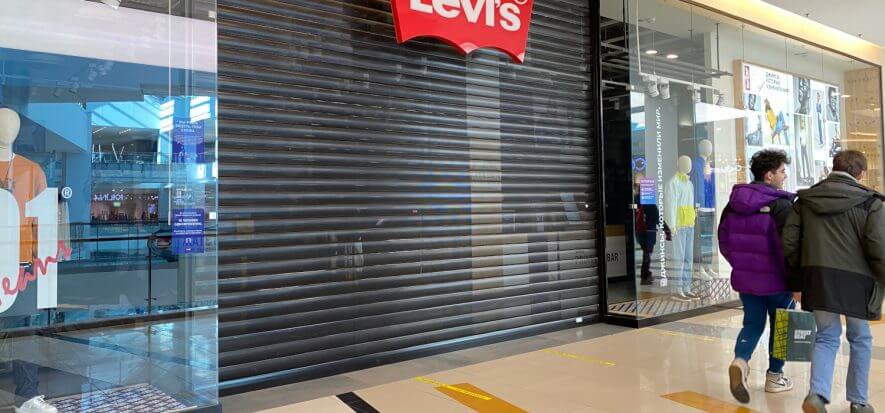The market consequences in Russia under sanctions? First of all, domestic shoe production has grown by 32% since February. Local retailers, meanwhile, are getting organised to take advantage of the legalisation of parallel imports of products (including luxury goods). Mango, on the other hand, is the last western brand to give up direct sales in Russia after 23 years. While others continue, often silently, to operate as before the war. Yale has an up-to-date list in an ever-changing context.
Russia under sanctions
Revaz Yusupov is the deputy director general of the Center for Advanced Technologies Development, an agency in charge of mandatory labelling. According to him, Russian companies have increased shoe production by 32% since February 2022. According to the data, more than 500 Russian companies produced 11.5 million pairs of shoes in February. The quantity has risen every month to 15.2 million pairs in May, Tass news agency reported. Meanwhile, to sell the products of brands that have left Russia, the major local marketplaces (such as Yandex Market and Ozon) intend to exploit parallel imports, legalised by the government. It’s looking bad for the designer brands. LVMH and Kering have, for instance, suspended operations in Russia. Should they decide to leave the country, it will be almost impossible for them to monitor distribution channels.
Those who remain under the radar
While it is well known that many brands have left the country, or suspended operations, less publicised is the fact that there are just as many that operate regularly in the Federation. Since the beginning of the invasion of Ukraine, Yale business school has monitored over 1,200 companies (in five categories), compiling a list that is constantly being updated. Among those that continue to work as usual in Russia are, of course, Chinese companies and marketplaces. But also Benetton, Diadora, Diesel, Giorgio Armani. As well as Global Fashion Group, Lacoste and Tom Ford. Then there is the list of companies postponing planned future investments/development/marketing while continuing substantial business: Capri Holdings, Ecco, Geox, Tom Tailor.
What Mango is doing
Spanish retailer Mango announces plans to franchise its 55 company-owned shops to local partners. A choice to protect its 800 employees. Mango had been present in Russia with its own shops since 1999. In March 2022, the company had declared that it would temporarily cease its activities in Russia. Mango has also reopened nine shops in Ukraine, four of which are company-owned and five franchised.
Photo (Shutterstock archive): shopping in Moscow in March 2022
Read also:










